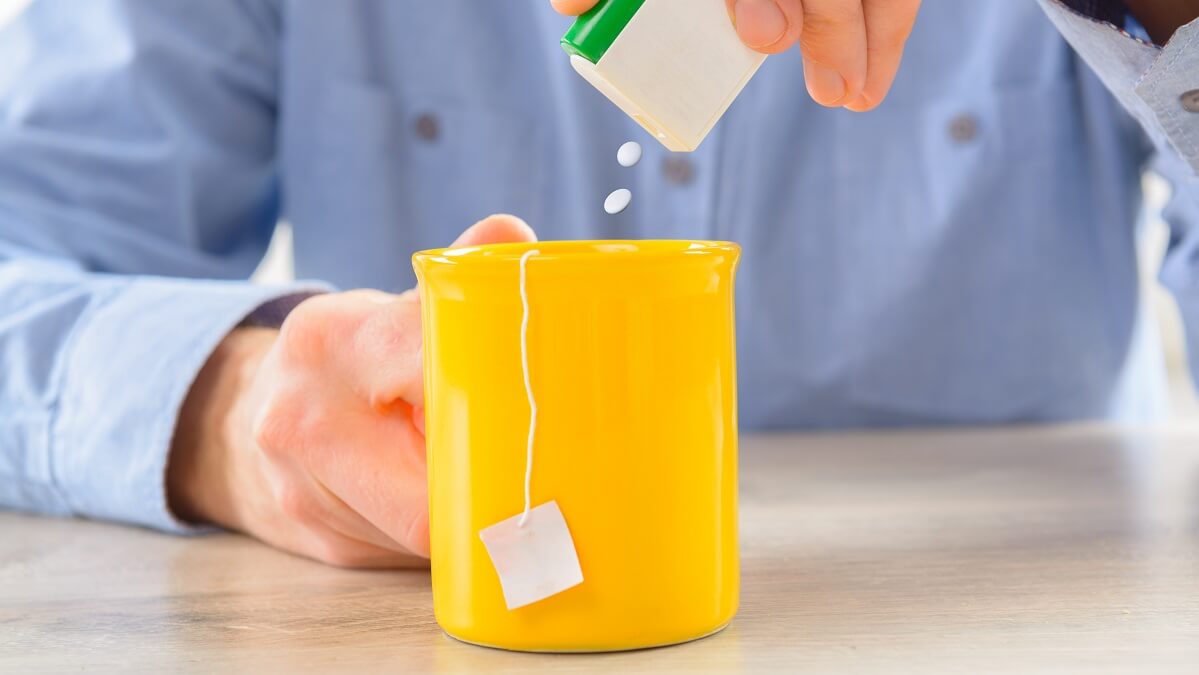You may have noticed artificial sweeteners making headlines in recent days. There is good reason for that. Last Friday, the World Health Organization (WHO) declared one of the more common artificial sweeteners – aspartame – “possibly carcinogenic”.
That’s enough to make most of us stand up and take notice. I certainly did, as I have a close relative who, in my opinion, consumes far too much artificial sweetener. Perhaps he’s too close a relative as, more often than not, any advice I give him falls on deaf ears.
But, as much as he might not listen to me, he is a devourer of knowledge and news.
A number of newspapers ran with the story. The Age online ran with the headline ‘Sweetener used in soft drink, chewing gum deemed a possible carcinogen’. Perfect, I thought. I’ll send this through to him.
Artificial news about artificial sweeteners?
But before I sent him a link to the story, I remembered another piece of advice I often give him. “Don’t just read the headlines,” I often tell him. “Read the article.”
Best to follow my own advice, I thought. So I read the article and before long was having doubts about sending through that link. “The sweetener aspartame is a possible carcinogen”, the article begins. The next word, however, is “but”. And it was a pretty big BUT. The sentence goes on, “… but it remains safe to consume at already agreed levels”.
The advice comes from two separate WHO expert panels, each of which has a different role. One advises of any evidence that a substance is a potential hazard. The other assesses how much of a real-life risk that substance actually poses.
These are important distinctions, and they were emphasised to me the day after the release of the WHO’s advice. I happened to catch part of ABC Melbourne’s Saturday morning show hosted by Matt Preston.
One of Matt’s regular guests is Dr Vyom Sharma, a GP who provides general health advice on the show, usually on a different topic each week. The topic on Saturday was indeed artificial sweeteners, and the headlines associated with the release of the WHO advice.
The sweet bird of truth
Dr Sharma quickly made it very clear that the alarm generated by the various headlines was very much needless. In his words, “I really think it’s a lot of hoo-ha about absolutely nothing.”
The reason is a statistical one, as he went on to point out. “We are talking about miniscule – miniscule – population-level risks that are found in studies.”
Dr Sharma addressed the fact that the WHO advisers had categorised aspartame as a ‘Category 2B’, which means ‘possibly carcinogenic’. In broad terms, that basically means, “there are some studies that may show an association between cancer and the exposure”.
There are two relevant points here, said Dr Sharma. The first is that there are many studies that don’t show an association. The second highlights the old research adage relating to statistics: “Correlation (in this case ‘association’) does not mean causation.”
One other aspect that can get lost in translation when advice such as this is released is comparison. Take the COVID vaccines, for example. Like all vaccines, they come with a risk, but that risk is far smaller than that posed by COVID itself.
The parallel here is sugar versus artificial sweeteners. Dr Sharma explains it: “There is no world in which artificial sweetener is more dangerous than having refined sugar.”
Would it be better to have water than an artificially sweetened drink? Almost certainly yes, but replacing a natural sweetener with an artificial one poses no additional risks, says Dr Sharma.
On reflection, I don’t think I will send the story link to my relative. Basically, the WHO advice, while valid, has created a storm in a teacup – albeit a teacup with added artificial sweetener.
Do you use artificial sweeteners? Have you had any concerns about their health effects? Let us know in the comments section below.
Also read: Six simple steps to cut out sugar
Health disclaimer: This article contains general information about health issues and is not advice. For health advice, consult your medical practitioner.


Look if you took notice of everything the WHO said was carcinogenic you would give up eating and drinking everything and die anyway, to me they have to much time on their hands along with all the other scientist out there instead of warning of what they think will happen they would better off spending their time finding cures for all the diseases that are out there.